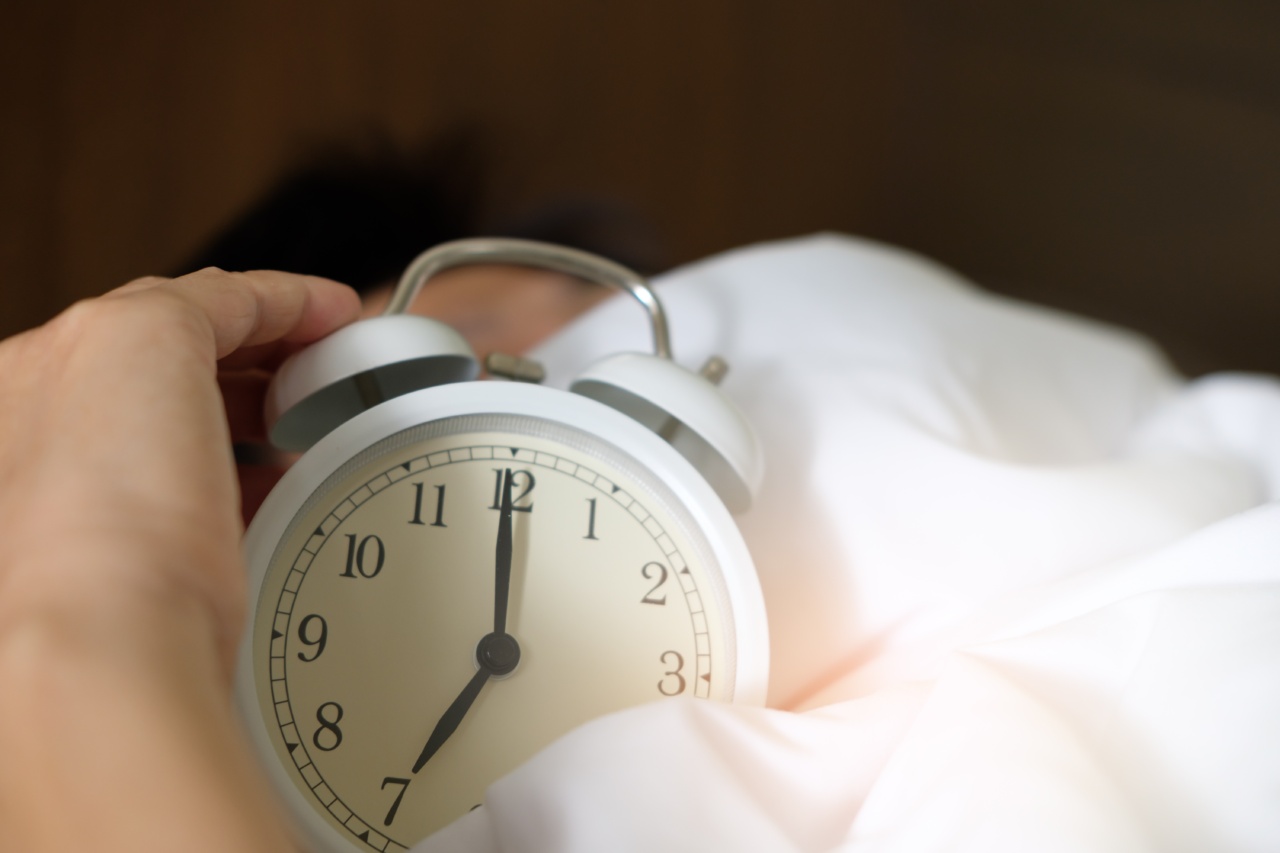As human beings, we are prone to falling sick from time to time. Whether it’s a common cold, flu, or something more severe, our bodies are vulnerable to infections and illnesses.
While we can’t control when we get sick, many people wonder if there is any correlation between the time of day and the severity of their illness. In this article, we will explore the notion of morning versus evening sickness and try to determine which is the easier time to be sick.
The Body’s Circadian Rhythm
Before diving into the topic, it’s important to understand the body’s circadian rhythm. Our bodies have an internal clock that regulates various physiological processes, including sleep-wake cycles, hormone production, and body temperature.
The circadian rhythm follows a 24-hour cycle and is influenced by external cues such as light and darkness.
The circadian rhythm plays a significant role in our overall health and well-being. Any disruption to this rhythm can have adverse effects on our immune system, metabolism, and other bodily functions.
With this understanding, let’s explore whether morning or evening sickness is easier to endure.
Morning Sickness: The Challenges
When we talk about morning sickness, the term is commonly associated with pregnancy. However, morning sickness can occur in other situations as well.
For instance, individuals with certain medical conditions or those undergoing specific treatments may experience morning sickness.
One of the primary challenges associated with morning sickness is the disruption it causes to daily routines. People with morning sickness often experience nausea, vomiting, and fatigue, making it difficult for them to carry out regular activities.
These symptoms can interfere with work, household chores, and personal commitments.
Another aspect that adds to the difficulty of morning sickness is the time at which it occurs. Mornings are typically associated with the start of the day, when people need to be productive and energetic.
Waking up already feeling unwell can be demotivating and impact one’s mood and mental well-being.
Furthermore, morning sickness may lead to poor appetite or aversion to food, which can affect nutrition and overall health.
Pregnant women, for example, often struggle to eat a balanced diet due to morning sickness, potentially leading to nutrient deficiencies.
Evening Sickness: The Challenges
While morning sickness may be more well-known and discussed, evening sickness can also be challenging for those who experience it.
Evening sickness refers to a pattern where symptoms become more pronounced in the evenings or at night, interfering with sleep and relaxation.
The timing of evening sickness can disrupt one’s ability to unwind and rest after a long day. Imagine feeling nauseous, fatigued, or in pain when you finally have the opportunity to relax and recharge.
It can significantly impact one’s quality of life, making it difficult to enjoy personal time or engage in activities that help alleviate stress.
Furthermore, evening sickness may disrupt sleep patterns, resulting in restlessness and reduced sleep quality.
Adequate sleep is crucial for our overall health and immunity, so any disruption caused by evening sickness can further compromise our well-being.
Unlike morning sickness, evening sickness may also affect social activities and relationships.
Many social engagements, gatherings, and events occur in the evenings, and being unwell during these times can lead to isolation and feelings of missing out on important moments with loved ones.
Which is Easier: Morning or Evening Sickness?
Now that we have examined the challenges associated with both morning and evening sickness, it is difficult to definitively label one as being easier than the other.
The impact of sickness can vary greatly depending on individual circumstances, severity of symptoms, and personal preferences.
For some, morning sickness may be more manageable because it allows for the rest of the day to recover and gradually regain energy.
On the other hand, evening sickness may be less disruptive to daily routines but can significantly impact sleep and relaxation.
It is important to acknowledge that each person’s experience with sickness is unique. What may be easier for one individual could be incredibly challenging for another.
As such, it is crucial to consult with healthcare professionals and seek personalized advice and treatment based on individual needs.
Tips for Managing Morning or Evening Sickness
Regardless of whether you experience morning or evening sickness, there are several strategies that may help manage symptoms and improve overall well-being:.
- Stick to a consistent sleep schedule to support your body’s circadian rhythm.
- Stay hydrated by drinking plenty of fluids throughout the day.
- Eat small, frequent meals to combat nausea and maintain a balanced diet.
- Try relaxation techniques such as deep breathing or meditation to alleviate stress.
- Discuss potential treatment options with healthcare professionals, including medications or natural remedies.
- Engage in light exercise or physical activities that promote blood circulation and improve mood.
- Make necessary adjustments to your daily routine, such as prioritizing rest and delegating tasks.
- Seek support from loved ones or join support groups to connect with others facing similar challenges.
- Take breaks and listen to your body’s needs for rest and recovery.
- Follow a well-rounded approach to self-care, including proper nutrition, sleep, and stress management.
Remember, everyone’s journey with sickness is different, and it’s crucial to prioritize self-care and seek professional help when needed.




























